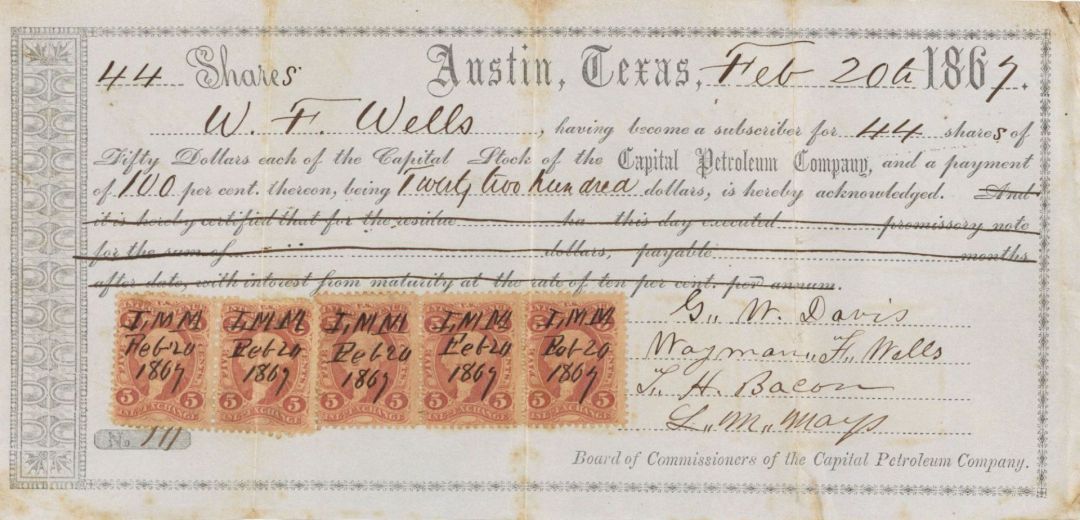Capital Petroleum Co. signed by Wayman F. Wells - 1867 dated Austin, Texas Oil Stock Certificate
Inv# OS1983 StockSmall size Stock with five 5 cents stamps. Austin, Texas. Uncancelled and not negotiable. Measures 9 1/4" x 5 1/2". Signed by Wayman F. Wells.
Wayman Frederick Wells (1815-1878) was a prominent early settler and veteran of the Texas Revolution. Born in Tennessee, he migrated with his family through Alabama before settling in Fayette and then Bastrop County, Texas, in the 1820s. In Bastrop, his family established a plantation called “Wells’ Pyramid,” where they engaged in farming and livestock raising.
At the age of twenty, Wells joined the Texas army in 1835. He served as a scout and spy during the revolution. In 1849, he married Mary Emeline Bacon, and they had nine children together.
In 1855, Wells moved his family to Travis County. He became a notable community figure and generous benefactor. He made significant contributions to local educational institutions, including the Baptist High School at Walnut Creek and Southwestern University. Wells also demonstrated a commitment to public service by serving on the board of trustees for the Texas Insane Asylum (later the Austin State Hospital) during Governor Francis R. Lubbock’s administration.
Wells passed away at his home on Walnut Creek in 1878 and was interred at the Davis Cemetery. His legacy as a key figure in the early development of Central Texas endures.
A stock certificate is issued by businesses, usually companies. A stock is part of the permanent finance of a business. Normally, they are never repaid, and the investor can recover his/her money only by selling to another investor. Most stocks, or also called shares, earn dividends, at the business's discretion, depending on how well it has traded. A stockholder or shareholder is a part-owner of the business that issued the stock certificates.












Ebay ID: labarre_galleries